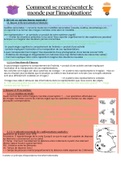Exam (elaborations)
Bar Prep MBE
- Course
- Institution
Transferred Intent Doctrine - Answer Transferred intent is defined as intending to commit a tort against one person but the intent is transferred to another tort or person. The transferred intent doctrine applies where the defendant intends to commit a tort against one person but instead (i) commit...
[Show more]





